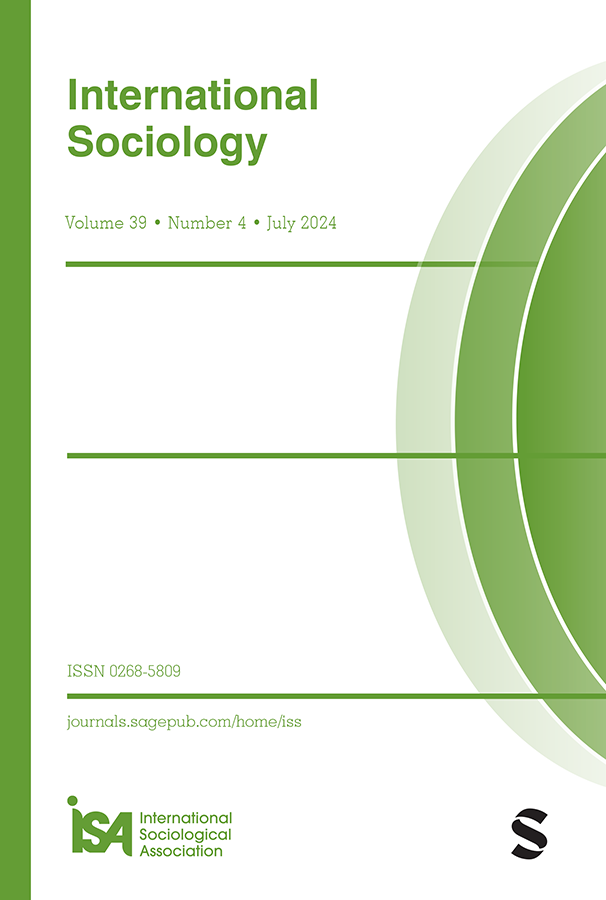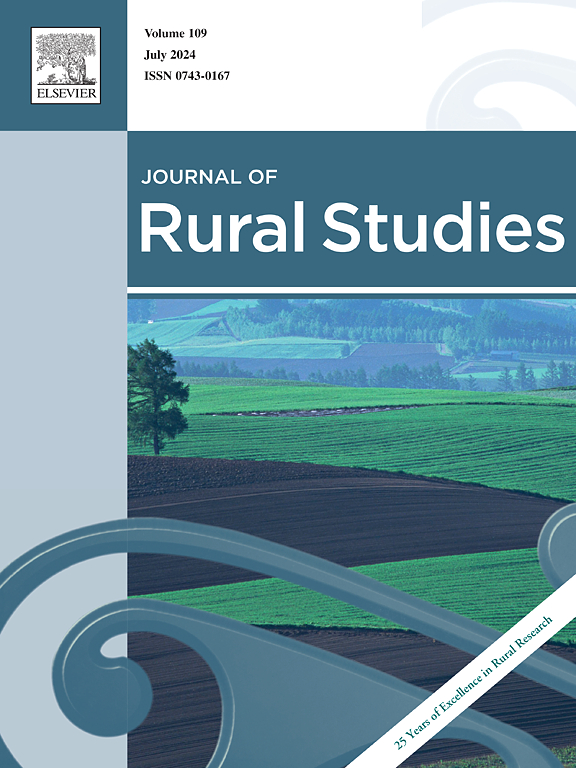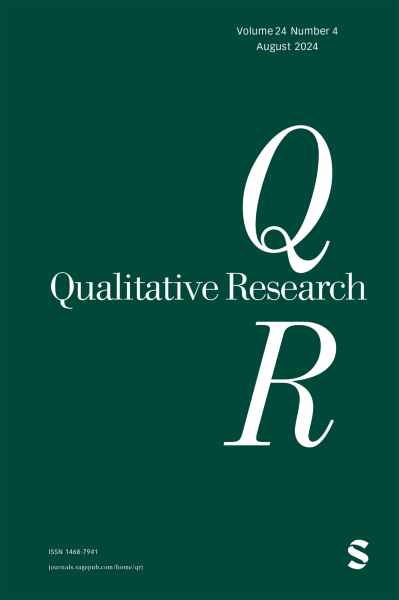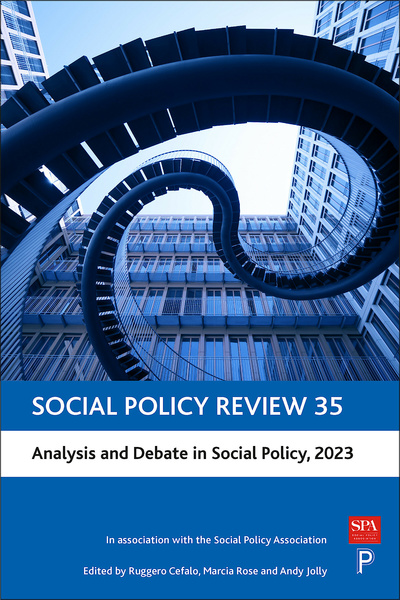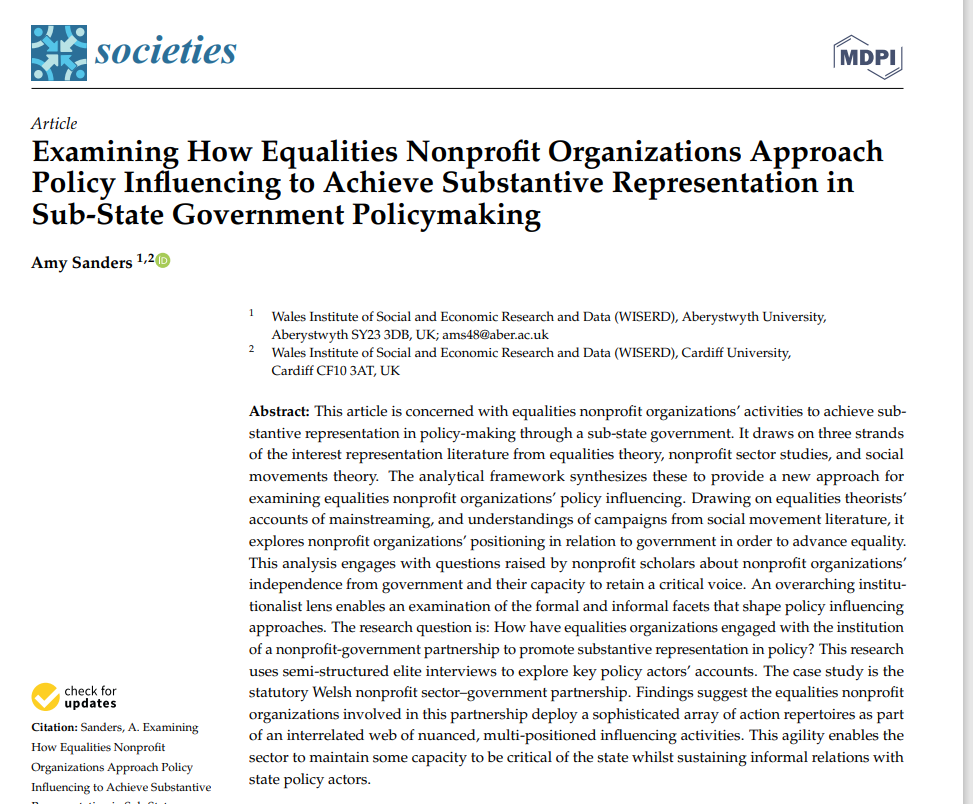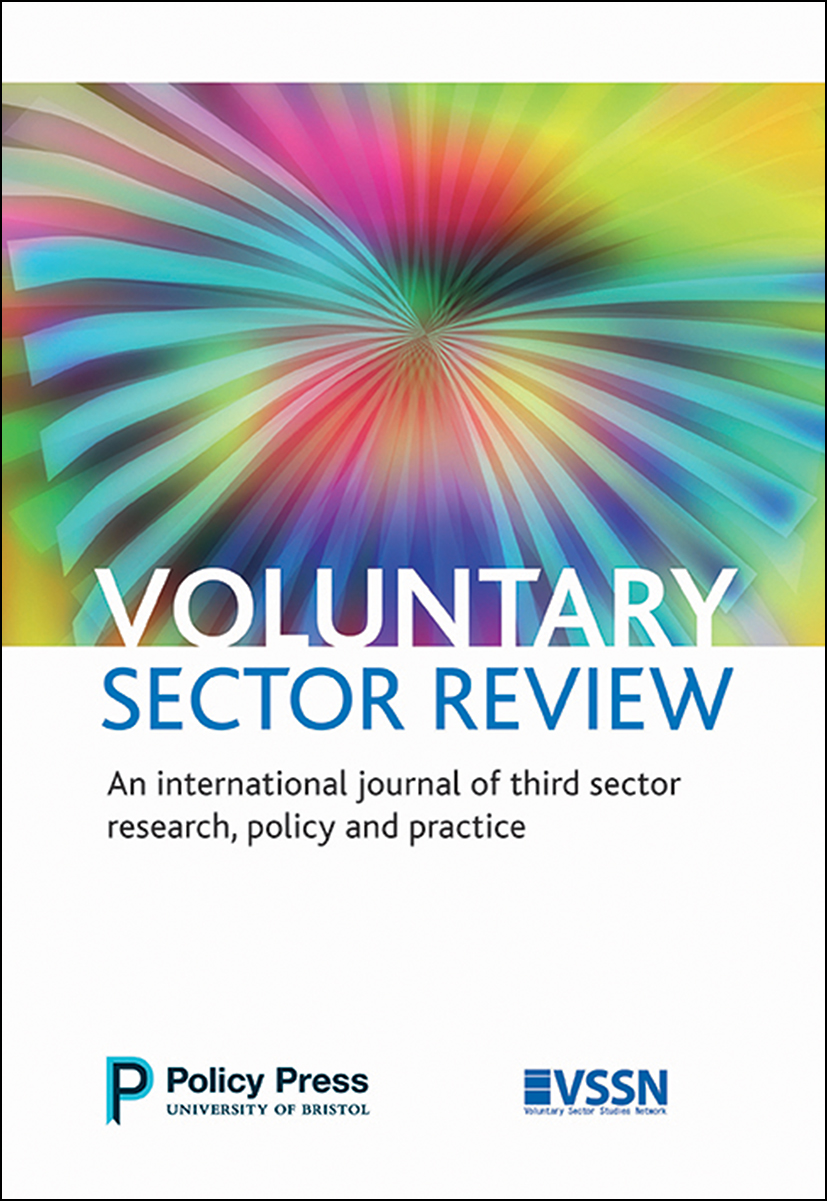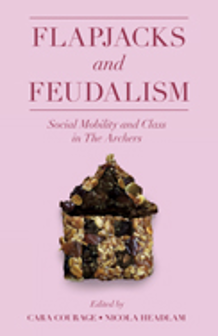Mae'r cynnwys hwn ar gael yn Saesneg yn unig.
Amy Sanders first joined WISERD as a PhD researcher in Cardiff University and she was appointed as a Research Associate in WISERD in Aberystwyth University in 2021. Between 2021-2024, Amy worked on three civil society research projects; The first was concerned with how national patterns of populism and polarisation manifest themselves in local communities; The second explored elites’ roles and systems of patronage within charities in the context of Welsh civil society; The third examined new repertoires of contention emerging in social movements with a focus on climate activism to understand how this contributes to the shifting dynamics of civic stratification in the age of uncertainty. Amy is a Co-Chair of Voluntary Sector Studies Network.
Amy undertook her PhD on the subject of ‘Institutionalising equalities? Exploring the engagement of equalities organisations in the Welsh third sector-government partnership’. Previously, Amy was awarded a first class BSc Econ degree on Social Philosophy followed by an MSc Econ on Applied Social Science from the University of Wales, Swansea. Between her Masters and PhD, Amy spent over 16 years working on projects that brought the third sector and public sector together. She was a director of a Welsh workers cooperative which promoted equality, inclusion, and democratic voice, and she coordinated participative projects for Welsh Government, local and public authorities and third sector organisations in every local authority in Wales. She also served as a Community Development Officer in a Community House in Swansea, and she was the Swansea Anti-Poverty Officer and coordinated Swansea Poverty Action Network.
Amy’s research interests include voluntary sector studies, equalities and civil society-state relations with a focus on how discourses shape and are shaped by society. She has an interest in equalities’ representation and the related implications for democracy theory. She has explored how civil society organisations and social movements seek to influence policymaking through different mechanisms on the insider-outsider continuum. Amy is interested in interorganisational relations and how equality and inequality is made manifest across civil society. In terms of equalities theory, she has an interest in mainstreaming, intersectionality and equalities institutionalism.
Amy is working on the Collaborative Governance and Deliberative Politics programme of the ESRC Transition fund in WISERD which investigates the involvement of state and non-state actors in policymaking through new processes of dialogue, deliberation, inclusivity and co-production. It seeks to co-create pilot projects that trial and evaluate innovative practices designed to realise, legitimate, or augment inclusive and deliberative politics. She is specifically working to co-produce an impact toolkit for communities on techniques and strategies for avoiding and countering polarisation in partnership with the Cardiff More in Common Partnership and the Jo Cox Foundation. She is also working on innovations for influencing policy and practice drawing on findings on elite volunteering to inform action on diversity and pathways to inclusion in senior volunteer roles. This research involves scoping extant theory and current practices of collaborative governance in Wales to bridge extant research with future research directions as well as exploring the place of creative methodologies for engaging citizens in politics through expressions of deliberative democratic voice.

